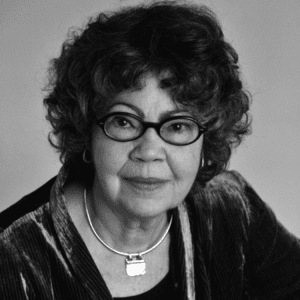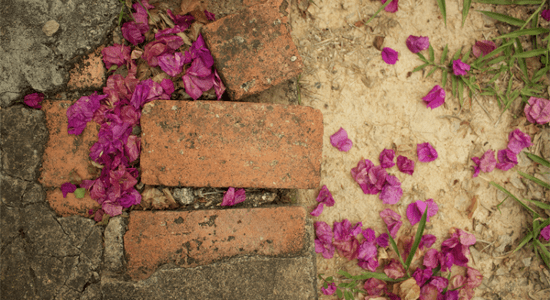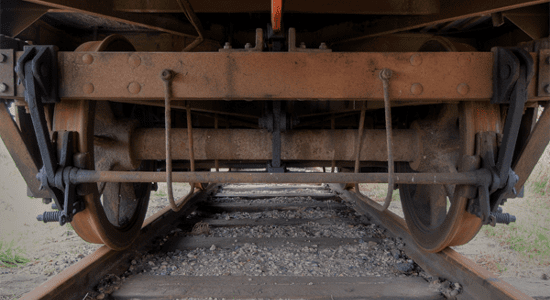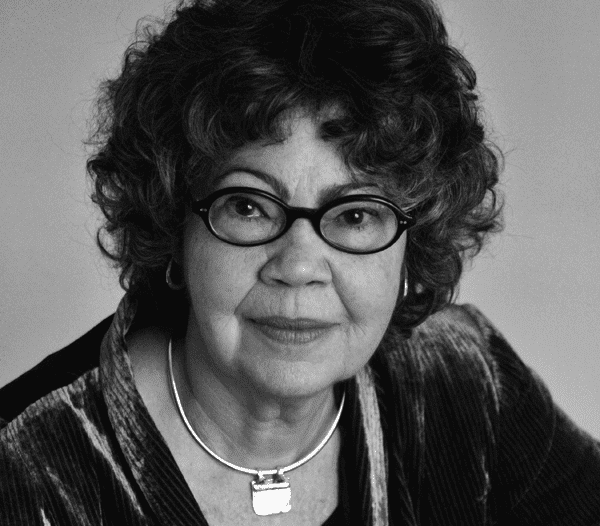Clocks ticking
Keys jingling
Hearts pacing
Thoughts racing
Unaware of this race
To safety
I have constantly been playing
Looking over the shoulder
Paranoid
Of who might gain on me
The shadows are my friends
The loneliness is an enemy
Preparing myself, to be
Ready
Just in case . . .
Clocks ticking
Keys jingling
Hearts pacing
Thoughts racing
The consistency to haste
Attached permanently
Paranoid
Of the races home
To protection
Depending on a soldier
When the shield is me
Within me
Within us
—Women
Prepared, to be
Ready
Just in case . . .
We need to be
Ready
For unexpected
Actions
Of
People
Who wish to hurt us
Emotionally
Not on a schedule, or
Based on fear—
But with confident assumptions
Just in case . . .
Shorthand
This Is Dedicated to You
If this be the black swirling mass of clouds that form my raw unarticulated thoughts that are in its purest form of honesty
Or the emptying of my rhythmic heart’s content in a gushing flow of scarlet like a shower of rose petals on the path I wish you would walk upon
The unification of my thoughts, my words, and my deeds in this delivery I would consider as an expression of—dare I say this word in today’s society—love . . .
But where can I begin to describe such an emotion that captures everything that makes my mind flutter away like a butterfly in a clear blue sky
Your eyes ablaze with a powerful fire, pierces through me like a needle injecting a cure to rid of the horrid shadows of the past that restrict me from being myself . . . and I let it all go, in a long exhale like the last breath before embracing death
It’s not a new beginning—it’s the reconstruction of the puzzle pieces of my soul, fitting in a never-thought of manner, to form a new vivid image, a new refreshing perspective on this struggle we call life
And when I look upon the road through which we walked hand-in-hand, your soul guiding mine, seemingly towards a golden sunset—it is the setting of a closed chapter in the book of life, and now I know why I see love in evolution when I look at what I left
With these words that turn the corners of my mouth upwards, the beating of my heart into a frenzy, my collapsing mind into a calm, peaceful state to words that slap me when I step into the deceiving thorns on the side of the road, cut me as I let my blood boil over a trivial matter, and push me into the unknown where I must fear fear itself
This is why I am Lyrically Opening Volumes of Emotion that Lead Often to Victories ofExcitement while Linking Opposing Vastness for Elation
Because, who really knows, opposites do attract, stick to each other’s side just like the North and South poles of a magnet, creating a field where we control our own world and we achieve our own dreams
You may not understand me at all, as you may see yourself just like I see myself, but you are one-of-a-kind, making you kind of the one for me
But I know that “if it be now, ‘tis not to come; if it be not to come, it will be now” so here I stand, saying again and again “This Is Dedicated to You,” so I can finally, with my full devotion and racing heart, utter these three words—I love you.
Have Your Dreamed Today?
I capture my eyes looking seeking So still there are words of rights Mine, yours . . . was. I had thoughts of freedom. Tales that entail stories of self-dignity not lost equality. Body of the soul over the soul in the body. So I placed my hands in a tale of seeking forgiveness and was given a chance . . . govern your choices. Entitlement to the gift of places, things and people—Like a hangman game, HUNG. For material wellbeing becomes most of our drive and we never wanna ride passenger side. Becoming disciples to the century of contemporary Babylon. So I forgave me, fool me? Lined execution to the believer of good thoughts. I fear only to the clouds and stairs . . . beyond even that. The heart lies . . . O the mind too. Situations to a pig’s world: black and blue. Dark like the skin of soul man unburied. Have you heard it? Time has tick tick tock to sounds of the march of February. Hearts of my human race broken to the belief of equity, serpents to the misconception of freedom. O but whom is I? Perhaps the watcher of the long cold knights. Let’s have our long overdue needed conversation on hypocrisy. Pictures, Pho Toes to the lost souls that fought. Fight to free murdered souls that ships held captive on waves of anger, God’s revenge. Isn’t that why my mother’s tears taste like sea salt? Peace, signs of words the deaf speak and the poor man seek. Say bye to peace . . . for where is she? What is she? I have lost sight as to what peace even is and unfamiliar of how to make my fingers stretch across such distance. Gang signs and colors, now this I know—for the sake of the mathematics of survival . . . but Peace signs? Is it in the block where the glock ring shouts? A call so many of my friends have come to worship. Cuz the rings of Bishop T D Jakes Sunday bells are too far away. And Ahlam’s recitation of Surah Rahman during her first rakat of fajr only ensure the evils of junni stay out of her home but not mine. See if Heaven had its way, this would be Hell. Good morning Jah bless . . . Rusta For I bless. So Many Troubled Souls Lost With no second change of repentance, O and Ms. Lady Liberty, let’s call her Ms. Bangkok shots My immigrant parents ran away from a beast well known to the silent cry’s behind closed doors among Africans. A life based on class status which rates your last name as your sole value in society and possibility of moving up the ranks. Where ethnic cleansing and racial tension are among those who and whom do not share the same skin tone. And the depletion of the economy is due to poor governance and its leaders rotting disease of corruption. This is why they fled and bare aims to a new battle which has isolated them from their homeland yet to become an undoable transformation that’s still not good enough for Sir Canada. It’s the S’s, R’s and L’s in my father’s British Post—secondary linguistics and the scents that fill the air from my mother’s shemma as she walks into the No Frills. We fight a new battle. Even in the’ Land of the Free’ their children still must grow accustom to fighting. Became a number or a face of stigma in these streets. I can’t even hear my screams in a city of so many broken dreams, So Many of Us Grow Accustom To Trinity. “Stop fighting” my daddy be tellin’ me. Make it easier on dear young sweet self. I suppose this means keep your head down and radical thoughts to yourself, He did not bring me here nor there for activism, sexual or fashion extermination. To him it’s all about a university education. I simply cannot fathom conformity For outer politeness makes my inwardly sick The system is something we must fight our way out of and be no longer enchained by Neither in Mama Africa or Sir Canada So I . . . double dog dare you . . . to dream. Just do it—dream Setting right there, and for a second allowing your aspirations to seem like your reality. Tucked away to a place where manifestation has its own silver lining Where destiny isn’t just a cliché from that dude trying to get your number Or a seven letter word used in a three minute infomercial as a mainstream gimmick to weightless. Dream! Now tell me . . . how was it?
Shifting Perspective
(Based on an exercise by Maggie Anderson, which she calls “In a dark room.”)

Find a photograph and “interrogate” it by asking and answering the questions listed below. This is my favourite exercise because it challenges you to write from different perspectives and in different voices. It will take you outside of yourself which is sometimes a good thing. You can do this exercise over and over again—especially useful when you are stuck for something to write about. Ask questions of, say, family photographs. Or old postcards. Or pictures in newspapers and magazines. You can respond in poetry or prose. Write as much or as little as you like. But try to answer all the questions. Have fun.
- Describe the photograph
- Write in the voice of someone or something in the photograph
- Write as someone or something in the photograph addressing the photographer
- Write to say something to someone you know who has not seen the photograph
- Write about the photo as the photographer
- Address someone in the photograph
- Describe what happened just before the photo was taken
- Describe what happened just after the photo was taken
- Describe what was happening outside the camera’s range just as the photo was being taken
- Write as if you found the photo 50 years after it was taken
Ancestral Poem
I My ancestors are nearer than albums of pictures I tread on heels thrust into broken-down slippers II My mother’s womb impulsed harvests perpetually. She deeply breathed country air when she laboured me. III The pattern woven by my father’s hands lulled me to sleep. Certain actions moved me so: my father planting. When my father planted his thoughts took flight. He did not need to think. The ritual was ingrained in the blood, embedded in the centuries of dirt beneath his fingernails encased in the memories of his race. (Yet the whiplash of my father’s wrath rever- berated days in my mind with the inten- sity of tuning forks. He did not think. My mother stunned wept and prayed Father Forgive Them knowing not what she prayed for.) One day I did not pray. A gloss of sunlight through the leaves betrayed me so. Abstracted me from rituals. And discarded prayers and disproven myths confirmed me freedom. IV Now against the rhythms of subway trains my heartbeats still drum worksongs. Some wheels sing freedom. The others Home. Still, if I could balance water on my head I can juggle worlds on my shoulders.
* This was published in Olive’s first poetry book, Talking of Trees.
Author of the Month: Olive Senior

Tell us about yourself.
I was born and grew up in Jamaica. I now live in Toronto, but the Caribbean still remains central to my work and I travel there frequently—especially in winter! I like to say I have the best of both worlds. I have spent virtually all of my life engaged in writing of one sort or another. I started out as a journalist and studied journalism at Carleton University. Since then, I have worked as an editor, publisher, researcher, speech writer and in recent years I have taught writing or conducted writing workshops—I have been for some years on the faculty of the Humber School for Writers. I have published 14 books so far—I write fiction, poetry, non-fiction and my second children’s picture book will be published later this year. I am also trying my hand at writing a play. Most writers tend to stick to one genre—and publishers and booksellers love that too—but I have always liked the challenge of exploring different forms of writing. People ask me how I switch from one to the other but it’s not a conscious decision—whatever holds my interest usually arrives in the form it will take—whether as poetry, prose or children’s story. So expressing myself in different genres comes naturally to me. The exception is probably my latest book—a novel called Dancing Lessons. I had previously written only short stories and novellas and I thought I was writing a short story until I realised that the narrator had taken hold and would not let go until she had fully told her story—a couple of hundred pages later! Many writers choose one genre and stick to it. It’s a question of doing what feels comfortable to you. I certainly encourage beginning writers to experiment and try new forms, new approaches. “Playing around” is a good way of finding out what you are best at. It’s good to move out of your comfort zone. You might surprise yourself.
When did you realize you had a passion for writing?
I tell people that I decided to be a writer at the age of four. I don’t know if that is true but that is the age I learned to read and fell in love with words. After that, I always seemed to have my head buried in a book, though there were not too many available when I was growing up in a remote part of Jamaica. I went to high school in the town of Montego Bay where there was a library which seemed like heaven at the time.
But my love of words and I like to think my facility as a writer came not only from the language of books but also from what is called the oral culture—the stories, the tales, the songs from the people around me in my Jamaican mountain village. As children, our big nighttime entertainment was storytelling—we had stories of Anansi, the trickster god of West Africa brought to the Caribbean, we had duppy (ghost) stories, we had traditional tales of the Grimm brothers retold Caribbean style, we had Bible stories, tales and legends of Greece and Rome and stories about local people and events.
There was a kind of rhythm to life that I also think infused the way I write. People sang at all their tasks—from washing clothes to floor cleaning, planting yam or house building so as children we grew up to those rhythms as well. When I came to write as an adult, I found that what worked best was a fusion of the two traditions I grew up with—the scribal and the oral, which also means a fusion of English which is our official language and Jamaican creole which is the informal but pervasive language of the people.
Thinking of myself as a storyteller has kept me firmly focused at all times on the idea that I am communicating to a reader out there and this holds good for everything I write—from a poem to all the entries in my Encyclopedia of Jamaican Heritage. Traditional storytelling can only happen if there is an audience present and the audience of my childhood gave immediate feedback to the teller—a story would be deemed “sweet” or satisfying if everyone enjoyed it to the end; “sour” if it was deemed boring. I am always desperately trying to avoid the latter judgement.
What pieces of writing/authors have had the greatest impact on you?
This is hard to answer because different writers have affected me at different points in my life—some because of what they had to say, others by how they say it. I have to confess though that I am still engaged with some of the writers of my youth such as Charles Dickens whom to my mind is the greatest storyteller (though he could have done with a good editor!) When I was learning to write as a teenager and young adult, I was very much shaped by the so-called English literary canon as well as the European, later by the American. My introduction to Canadian literature has come much later in my life. I think the books that have had the greatest impact in shaping me as a writer were those which first presented me with a world with which I could identify. In my early teens before there was much Caribbean literature available I found my multi-cultural world mirrored in books from the American south such as those of Truman Capote or Carson McCullers. Of course since then, there have been endless books from America, the Caribbean, Africa and elsewhere which have presented a world which includes people who are not all European (as all the books of my childhood did). Much later, I discovered Latin American writers such as Gabriel García Márquez, Mario Vargas Llosa, and above all Jorge Amado of Brazil who presented a world that was closer to my own in which life was not all rational and linear but infused with magic, the irrational and the unexplainable.
How and when do you find time to write?
I literally have to carve writing time from my daily activities which are taken up with earning a living. Sorry, folks, but writing alone will hardly provide you with a livelihood which is why most writers are also engaged in other activities. But I have no patience with people who say “I have no time to write” because I believe if writing is your imperative then somehow or other, you will find time to do it. I have got all my books written in between doing a million other things, including travelling. I have to confess though that my approach to writing depends on the type of book I am working on. My non-fiction books—such as the one I am writing now—usually require a lot of research which requires commitment to blocks of time which means planning and carving out space. But a lot of my other work (fiction, poetry) tends to get done in my head—until I can find the time to write it down. So, another confession, I am not the type of writer who writes every day. I tell myself that a lot is going on in my unconscious even when I am not sitting at my computer. Outside of non-fiction then, I tend to sit and write when the material has been processed and ready. But each of us has to develop a writing style of our own that best suits our personality and circumstances. The lesson is: stop making excuses.
What has been some of the biggest challenges you’ve faced as a writer?
The biggest challenge is what I have said above: finding the time to get it done. I wish I could just sit and write and do nothing else. Choosing to commit to writing means sacrifice and commitment. Of course like most writers, there is also the challenge of getting published, especially in a climate when the ground rules keep changing. I have been fortunate that I have managed to get my work published and noticed internationally—reviewed, written about and sometimes taught in schools and universities. But the status of a “literary writer” is different from that of a “popular” writer who is more likely to get the money and fame. I personally think there is room for all forms of writing. If you want to write, it doesn’t matter what you choose to write about—be honest about what you want to achieve and aim to be good at it. Above all, learn your craft. The best way to do this is by reading books in the genre you want to write in. Writing is language-based, so master language.
How have you changed as a writer over the years?
I hope I keep on getting better. I certainly don’t think I know everything and I am always striving to outdo myself. When I started to write, I knew nothing about process—I never had classes or writing mentors. So I am largely self-taught as are most writers I know. I had a very thorough education though that was grounded in language and I learnt to write from reading (still the best way). But I did not have a vocabulary for the craft of writing. I wrote short stories (and my first book Summer Lightning won the Commonwealth Writers Prize) but I could not have given a definition of what a “short story” was. I simply wrote intuitively. I think the great change for me has come about because once I was published I was asked to conduct writing workshops and to teach writing and talk about it. This forced me to learn all about writing techniques. I was versed in the craft of writing but I had to learn to deconstruct what I was doing and understand how it all fitted together. All of this has helped me to see how attending writing courses can help the writer learn in a short time what people like me learned over a long time by trial and error, so it can short-circuit the process. It can assist the young writer to focus on the craft and develop self-criticism, as well as confidence. Above all, it can provide the most important ingredient of all which is feedback from a trusted mentor. Over the years, I have learnt to be much more conscious of what I am doing as a writer, but whether this is a good thing or not is for readers of my work to say.



